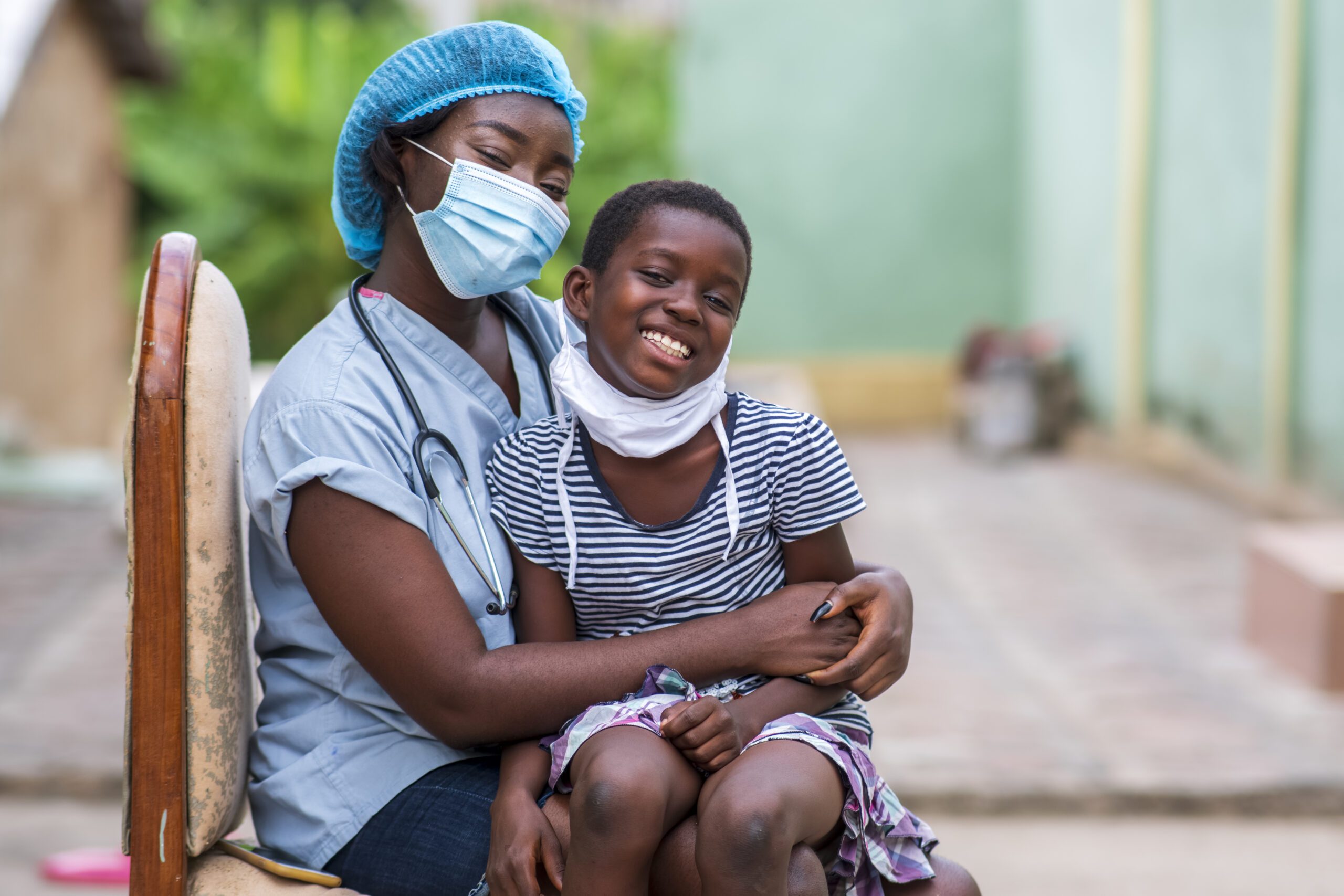
The Impact of Health Care Access on Women’s Economic Opportunities in Nigeria
Access to quality healthcare is essential for women’s empowerment, yet millions of Nigerian women face barriers to receiving the medical care they need. From reproductive health services to maternal care and chronic disease management, healthcare plays a significant role in determining a woman’s ability to pursue education, participate in the workforce, and achieve financial independence.
When women are healthy, they can contribute meaningfully to their families, businesses, and communities. However, when healthcare access is limited, women struggle with illness, unplanned pregnancies, and financial burdens that keep them trapped in poverty. In this blog, we explore how healthcare access affects women’s economic opportunities, the challenges they face, and solutions for a healthier, more empowered future.
Why Healthcare Access is Essential for Women’s Economic Growth
-
Reducing Work Absences Due to Health Issues
When women have access to healthcare, they can prevent and manage illnesses, allowing them to stay productive in their jobs and businesses.
Example
Women who suffer from untreated reproductive health conditions (such as endometriosis or fibroids) often experience severe pain, leading to frequent absences from work. This affects their career growth and financial stability.
Solution
Expanding access to affordable and specialized healthcare will help women manage chronic conditions, reducing lost work hours.
-
Maternal Health and Economic Stability
A woman’s ability to safely give birth and recover affects her ability to work and support her family.
Nigeria has one of the highest maternal mortality rates in the world, with over 58,000 women dying yearly from childbirth-related complications (WHO). Many deaths could be prevented with better antenatal care, skilled birth attendants, and emergency medical services.
Example
Women who suffer from obstetric fistula (a childbirth-related condition) are often stigmatized and abandoned, leaving them unable to work or support themselves.
Solution
Government and NGOs should invest in free or low-cost maternal health programs to ensure women survive childbirth and remain active in the workforce.
-
Family Planning Improves Women’s Economic Choices
Women who have access to contraceptives and reproductive health education can plan their families, allowing them to stay in school, pursue careers, and delay childbirth until they are financially stable.
Example
A girl who becomes pregnant as a teenager is more likely to drop out of school and face limited job prospects. However, women who have access to family planning are more likely to achieve higher education and secure better jobs.
Fact
In Nigeria, only 12% of women use modern contraceptives, leading to high rates of unplanned pregnancies (Guttmacher Institute).
Solution
Expanding access to free or affordable contraceptive options in hospitals, pharmacies, and community health centers will give women more control over their future.
-
Period Poverty and Workplace Productivity
Many Nigerian women lack access to sanitary pads and menstrual health education, leading to embarrassment, infections, and missed work or school days.
Fact
1 in 10 Nigerian girls misses school during her period due to lack of menstrual hygiene products (UNICEF).
Example
Women in low-income jobs often cannot afford sanitary pads, forcing them to use unsanitary alternatives like rags or newspapers. This affects their confidence and ability to work effectively.
Solution
Employers should provide free menstrual products in workplaces, and the government should remove taxes on sanitary pads to make them more affordable.
-
Mental Health and Economic Productivity
Mental health issues such as anxiety, depression, and post-traumatic stress disorder (PTSD) can prevent women from reaching their full economic potential. However, mental health services in Nigeria remain underfunded and stigmatized.
Fact
Nigeria has only 250 psychiatrists for over 200 million people (WHO). Many women suffer in silence, unable to get help.
Example
Women experiencing postpartum depression after childbirth often struggle with their jobs and relationships, but they receive little or no mental health support.
Solution
Workplaces should provide mental health support services, and the government should integrate mental health care into primary healthcare facilities.
Barriers Preventing Nigerian Women from Accessing Healthcare
High Cost of Medical Care: Many women cannot afford consultation fees, medication, and treatments, especially in private hospitals.
Shortage of Healthcare Facilities: Rural areas have few hospitals and clinics, forcing women to travel long distances for medical care.
Cultural and Religious Stigma: In some communities, seeking family planning services or mental health care is discouraged.
Limited Awareness: Many women do not know their health rights or where to access free or low-cost services.
How to Improve Healthcare Access for Women in Nigeria
-
Expanding Universal Health Coverage (UHC)
What Needs to Happen?
- Government should increase funding for affordable health insurance schemes for low-income women.
- More primary healthcare centers (PHCs) should be built in rural areas.
- Community-based health workers should be trained to provide basic medical care to women in remote areas.
Success Story
The Lagos State Health Insurance Scheme provides subsidized healthcare for pregnant women and low-income families.
-
Strengthening Reproductive Health and Family Planning Services
What Needs to Happen?
- Hospitals and clinics should offer free contraceptive counseling and products.
- Schools should introduce comprehensive sexual health education to empower young girls.
- Religious and community leaders should be involved in normalizing family planning discussions.
Success Story
In Kaduna State, community-based programs have successfully reduced teenage pregnancy rates by providing education on contraception.
-
Providing Free Menstrual Health Products
What Needs to Happen?
- The Government should remove taxes on sanitary pads to make them more affordable.
- Employers should provide free menstrual products in workplaces.
- Schools should distribute free sanitary pads to girls to keep them in school.
Success Story
NGOs like Blossomflow Empowerment Foundation have been distributing free sanitary products to girls in underserved communities.
-
Expanding Mental Health Support for Women
What Needs to Happen?
- More mental health professionals should be trained and deployed in primary healthcare centers.
- Employers should offer mental health days and counseling services for female employees.
- Awareness campaigns should reduce stigma surrounding mental health.
Success Story
The Mentally Aware Nigeria Initiative (MANI) is working to improve mental health awareness and support for Nigerian women.
Conclusion
A Healthier Future for Nigerian Women
A woman’s ability to access quality healthcare determines her ability to live a productive and financially independent life. Without good health, women cannot work, learn, or contribute fully to society.
By improving maternal health, reproductive health, mental health, and menstrual health services, Nigeria can unlock greater economic opportunities for women—ultimately strengthening families, businesses, and the nation’s economy.
How Can You Help?
- Support organizations providing healthcare to women.
- Advocate for free menstrual health products and family planning services.
- Push for stronger healthcare policies that prioritize women’s health.
For more information, visit our Blog Section.
All Categories
Recent Posts
Why SDG 4 Cannot Be Achieved Without Ending Period Poverty
Tags
Give them a helping hand
Every donation fuels our mission to combat period poverty. Your generosity brings us closer to menstrual equity.
+234-909-482-1642
inquiries@blossomflow.org




